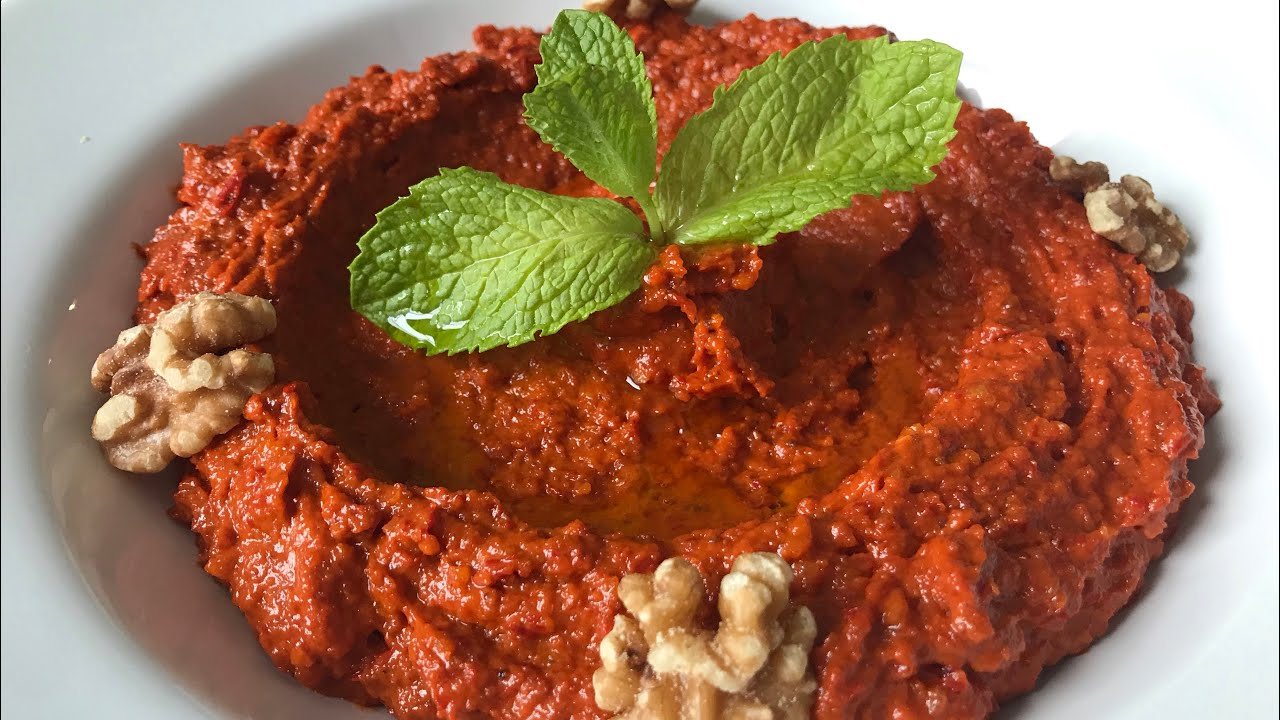Syrian mezze lovers and culinary explorers alike celebrate muhammara—a vibrant dip made from roasted red bell peppers, walnuts, pomegranate molasses, breadcrumbs, garlic, olive oil, and spices. Long-time mezze‑table regulars describe its rich, slightly smoky sweetness and layered texture that instantly brightens crudités, flatbreads, or grilled meats. Its sensory richness—deep crimson hue, nutty aroma, and sweet‑tart flavor—grounds this ingredient firmly in real-world food experience.
Food historians, cultural chefs, and nutritionists highlight muhammara’s expertise and authority. Originating in Aleppo, Syria, it has been a staple in Levantine cuisine for centuries and is appreciated for both its taste and cultural resonance. Cookbooks and culinary texts describe bixin-rich walnut oils and pomegranate molasses providing antioxidant benefits, while Mediterranean diet advocates note its heart‑healthy ingredients (wikipedia.org). Its balance of whole‑food ingredients and traditional use across generations underscores its culinary credibility.
Trustworthiness comes from validated recipes, local sourcing standards, and consistent preparation methods. Well-known restaurateurs and home cooks provide transparent ingredient lists and allergy warnings (e.g. walnut sensitivity). Many region-specific producers now offer clean-label versions with no artificial additives. When served chilled or room-temperature, muhammara maintains both freshness and flavor integrity. For caterers, food bloggers, and flavor seekers, this dip offers authentic regional character, nutritional insight, and tasteful trust.

